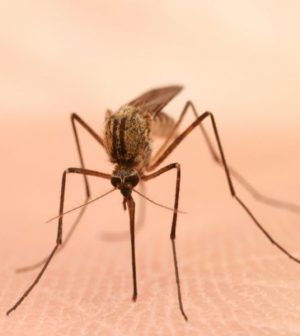- The Best Time of Day to Drink Bone Broth to Maximize Health Benefits
- 8 Ways to Increase Dopamine Naturally
- 7 Best Breads for Maintaining Stable Blood Sugar
- Gelatin vs. Collagen: Which is Best for Skin, Nails, and Joints?
- The Long-Term Effects of Daily Turmeric Supplements on Liver Health
- Could Your Grocery Store Meat Be Causing Recurring UTIs?
- Are You Making This Expensive Thermostat Error This Winter?
- Recognizing the Signs of Hypothyroidism
- 10 Strategies to Overcome Insomnia
- Could Artificial Sweeteners Be Aging the Brain Faster?
Exposure to Zika Virus in Womb Might Alter Kids’ Development

Children exposed to the Zika virus may need more support as they start school, even if they were not diagnosed with Zika-related birth defects and congenital Zika syndrome (CZS), a new study suggests.
Children may still have differences in brain development, including those in thinking skills, mood and mobility, though researchers said some identified in the study may have been a measure of parents’ worry rather than actual differences.
“There are still many unanswered questions about the long-term impacts of Zika on children exposed in utero,” said first author Dr. Sarah Mulkey, a prenatal-neonatal neurologist at Children’s National Hospital in Washington, D.C.
“These findings are another piece of the puzzle that provides insight into the long-term neurodevelopment of children with prenatal Zika virus exposure,” she said in a hospital news release. “Further evaluation is needed as these children get older.”
Children who were exposed to the Zika virus prenatally during the 2015-2017 epidemic are now reaching school age.
Mulkey’s team studied the brain development of 55 youngsters in Sabanalarga, Colombia, now 3 to 5 years of age, who were exposed to Zika in the womb.
They were compared to 70 4- and 5-year-olds who were not exposed to Zika.
The children were tested on manual dexterity (such as feeding a coin through a slot), aiming and catching, balance and knowledge of colors, letters, numbers and shapes.
Their parents completed provided information about their child’s mental functioning, including memory and emotional control; behavioral and physical conditions, such as responsibility and mobility; and their own feelings about parenting, including whether they felt distress.
Although parents of Zika-exposed children reported significantly lower levels of mobility and responsibility in their children compared to the control group, the differences in cognitive test scores were not significant, researchers found.
Parents of six Zika-exposed kids, or 11%, said their youngsters had mood problems compared to 1% of control children. Parents of Zika-exposed children were also more likely to report distress.
Testing by professionals found no significant differences in manual dexterity in kids exposed to Zika. Both groups had low scores on school readiness.
Researchers said parents’ responses were influenced by their worries about their child’s development because of the Zika exposure. Some of the differences may owe to the child’s age, they added.
The findings were published Nov. 29 in Pediatric Research.
More information
The U.S. Centers for Disease Control and Prevention has more on Zika.
SOURCE: Children’s National Hospital, news release, Nov. 29, 2022
Source: HealthDay
Copyright © 2026 HealthDay. All rights reserved.










